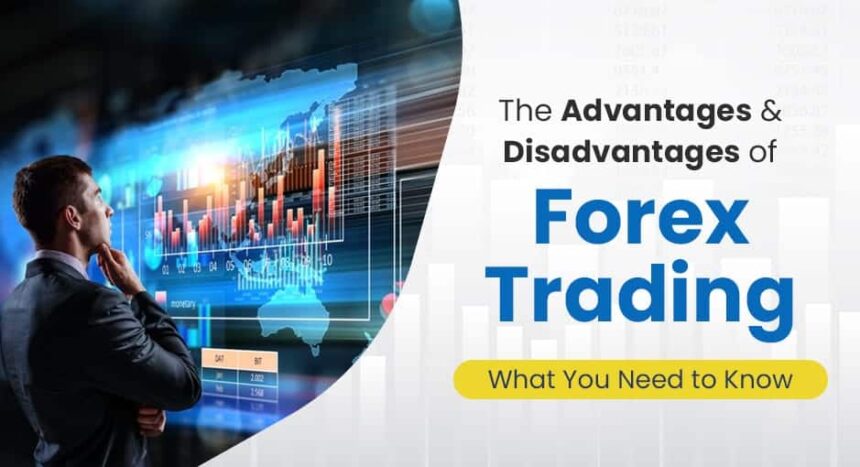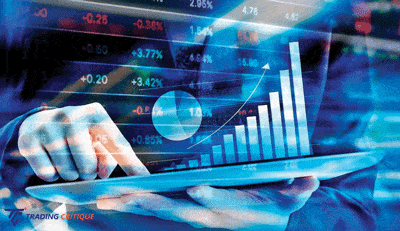Forex trading, also known as foreign exchange trading, is the act of purchasing and selling currencies to profit. With a daily trading volume of around $6.6 trillion, the forex market is the largest financial market globally. It is one of the world’s most liquid markets. Forex is accessible to individuals, institutions, and corporations.
Due to its profit potential, foreign currency trading has gained popularity among traders and investors. Yet, like any other investment, forex trading has its advantages and disadvantages. This article will explore the pros and cons of forex trading.
Advantages of Forex Trading
High Liquidity
One of the significant advantages of forex trading is high liquidity. Due to the vast size of the forex market, traders can enter and exit positions, unlike other financial markets. The high liquidity ensures that traders can execute trades at their desired prices without significant price movements.
Accessibility
Forex trading is accessible to almost anyone. With the advent of the best forex trading platforms online, traders can access the forex market from anywhere in the world with an internet connection. Unlike other financial markets that need a large capital outlay, forex trading allows traders to start with a small amount of money.
Potential for High Returns
Forex trading has the potential for significant profits due to the high leverage brokers provide. Leverage allows traders to control large positions with a small amount of money. Yet, traders must exercise caution as high leverage can lead to significant losses.
24-Hour Market
The forex market is open 24 hours a day, five days a week, making it an attractive market for traders worldwide. Traders can trade at any time of the day or night, depending on their preferred trading style.
Diversification
By trading different currency pairs, traders can diversify their investment portfolios. Diversification helps to spread the risk and reduce the impact of market volatility on traders’ portfolios.
Transparency
The forex market is a transparent market with a clear pricing structure. The determination of prices of currency pairs succeeds the forces of supply and demand. Traders have access to real-time pricing information. It enables them to make sound trading decisions.
High Leverage
Forex trading allows traders to leverage their trades. It means they can control a more prominent position in the market with a smaller investment. Leverage can magnify profits, but it can also magnify losses if not used. This high level of leverage is why forex trading is often considered a high-risk investment.
Low Transaction Costs
In comparison to other financial markets, forex trading has low transaction costs. Brokers usually charge a small fee, known as a spread, for each trade. It is the difference between the bid and ask prices of a currency pair. This makes it more cost-effective for traders to enter and exit trades.
Disadvantages of Forex Trading
High Risk
Forex trading is a high-risk investment due to the volatile nature of the currency markets. The market can experience significant price movements in a short period. It leads to significant profits or losses. Traders need to have a robust risk management strategy in place to cut their losses. Learn the basics of Forex trading from Trading Critique to minimize your risks.
High Leverage
Although high leverage is an advantage, it can also be a disadvantage. Traders who use high leverage risk losing more than their initial investment if the market moves against their position. It is essential to use leverage judiciously and only take risks that traders can afford.
Complexity
Forex trading is a complex investment that requires a deep understanding of the market and its dynamics. Traders need to keep abreast of economic and political news that can impact the currency markets. A lack of knowledge can lead to significant losses.
Volatility
The forex market is volatile and can be subject to sudden and unexpected price movements. This can make it difficult for traders to predict the market’s direction, leading to losses. In addition, traders may be exposed to currency risk if they hold positions overnight, as the value of currencies can fluctuate.
Scams and Fraud
The forex market is susceptible to scams and fraud, with many unscrupulous brokers operating in the market. Traders must do their due diligence. Only work with reputable brokers with a track record of transparency and reliability.
No Centralized Exchange
The lack of a central exchange makes it challenging to regulate the market. It leads to market manipulation and insider trading.
Emotional Trading
Forex trading can be an emotional investment. Traders need to exercise discipline and emotional control. Traders who allow their emotions to influence their trading decisions risk making irrational decisions, leading to significant losses.
Lack of Transparency
The forex market is not governed by a single body. It is referred to as decentralization. This lack of transparency can make it difficult to determine the fair value of currencies. Traders can be affected by price manipulations and other unethical practices.
Conclusion
Forex trading has both advantages and disadvantages. The traders need to consider this before entering the market. It involves high risk, volatility, and a complex market to navigate, while the market offers high liquidity, low transaction costs, and the ability to trade 24/7.
If you decide to start forex trading, make sure that you have the knowledge and skills required to succeed. Start with a demo account and move to a live account.
To limit your losses, always use risk management tools such as stop-loss orders. Traders need to manage their risk and use leverage carefully. Stay updated with the latest news and events to succeed in the market. With proper education, discipline, and a solid trading plan, traders can profit from the forex market. To know more about the top 10 forex trading platforms, follow Trading Critique. Our experts have done research on each one of them and has answers to all your forex-related queries. Follow now!




